Democrats say the
nation should be ashamed of its ban on gays serving
openly in the military. It discourages qualified people from
joining the ranks at a time when the armed forces are
stretched by two wars, they say, and is degrading to
those willing to serve their country.
So what have the
Democrats done about it? Nothing, really.
Since taking
control of Congress in January 2007, Democrats have not
convened hearings on the matter or taken up legislation that
would let gays serve openly, although most party
members favor repealing the prohibition. Instead,
Democrats have focused their efforts on bringing
troops home from Iraq and other issues that have broad
appeal among voters, such as lowering gas prices.
In a recent
interview with The Advocate, Democrat Barack
Obama stopped short of promising to lead the way for
change, saying only that he can ''reasonably see'' a repeal
of the current ban if elected president.
Indeed, allowing
gays to serve openly has slid from being a top
campaign pledge of President Clinton's to a footnote on the
Democratic agenda even as some of the staunchest
opponents of such a move soften their rhetoric and
acknowledge that the nation's attitudes are changing.
''Politics is
often driven by risk aversion and fear, and that's big,''
said Nathaniel Frank, a senior research fellow at the
Michael D. Palm Center in Santa Barbara, Calif., who
supports eliminating the ban. ''There are people who
don't want to be out front on this.''
The reluctance is
in large part a result of Clinton's painful experience.
As one of his first acts as president, Clinton sought to
make good on his 1992 campaign pledge to open the
military to gays. His effort to change the law
eventually gave way to the current ''don't ask, don't tell''
policy -- but not before debate on the issue divided his
party, awakened a fierce social conservative movement,
and helped GOP critics cast Clinton as a social
liberal who was woefully out of touch with the
military.
''Don't ask,
don't tell'' is intended to keep the military from asking
recruits their sexual orientation. In turn, service members
can't say they are gay or bisexual, engage in
homosexual activity, or marry a member of the same
sex.
No doubt Obama
and congressional Democrats want to avoid Clinton's fate.
If elected, Obama's primary task would be trying to end the
Iraq war without alienating the military or appearing
to the American public as weak on national security
issues.
''Many [party]
members underestimate where Americans are on this,'' said
Marty Meehan, the former Massachusetts Democratic
congressman who last year introduced a House bill to
repeal the current policy. His attempts to advance the
legislation met quiet resistance among the more
conservative Democrats on the House Armed Services Committee
who feared the issue would prove too divisive among
their constituents, particularly those on military
bases.
The party's
reluctance to champion the cause also is a matter of
political reality: Democrats lack a veto-proof majority in
Congress.
''We know this is
an issue that would not be met with a lot of enthusiasm
on the part of the Administration. That's a big reality,''
said Rep. Susan Davis, a California Democrat and
chairwoman of the House Armed Services personnel
subcommittee. ''You want to spend time on the things
you can move.''
Davis and other
Democrats now say opportunity is on the horizon,
especially if Obama is elected president. (Whereas Obama
supports allowing gays to serve
openly, presumptive Republican presidential
nominee John McCain backs the current policy.)
Davis said she
plans to convene a hearing on the issue by the end of the
year. House speaker Nancy Pelosi said she supports the
creation of a panel of military experts to study the
issue.
But have times
changed so much since the 1993 debate that Democrats could
escape any major backlash? Strong opposition to gays in the
military remains among conservatives for sure, while
moderates are reluctant to embrace change in a time of
war.
''The question
is, Should this debate be undertaken now, when the nation
is heavily engaged in missions abroad, particularly in Iraq
and Afghanistan?'' asked Sen. John Warner of Virginia,
former chairman of the Senate Armed Services Committee
and now its number 2 Republican.
Still, advocates
cite a major shift in Americans' attitudes in the past
15 years.
In 2007 two
separate polls conducted by CNN/Opinion Research Corp. found
that a majority of Americans thought gays should be allowed
to serve openly in the military.
''You have gay
people coming of age who have never known what 'the
closet' is,'' Frank said. Instead, most young people today
-- gay or straight -- grew up watching television
shows like Will & Grace and the The Ellen
DeGeneres Show, with prominent
gay characters, he said.
Surprisingly,
some of the biggest past critics of gays in the military
agree that times have changed, including former senator Sam
Nunn.
A conservative
Georgia Democrat and then-chairman of the Senate Armed
Services Committee, Nunn led the opposition to Clinton's
proposal to lift any restrictions. He eventually
embraced ''don't ask, don't tell'' as a compromise.
Last week Nunn --
whose name has been floated as a possible running mate
to Obama -- told reporters in Atlanta that he thinks it
would now be appropriate for the nation to revisit the
matter.
''I'm not
advocating anything -- except I'm saying the policy was the
right policy for the right time, and times change. It's
appropriate to take another look,'' Nunn was quoted as
saying by The Atlanta Journal-Constitution.
Colin Powell, the
former chairman of the Joint Chiefs of Staff, told
NBC's Meet the Press last year that ''gays and
lesbians should be allowed to have maximum access to all
aspects of society.'' A month later, in a confirmation
hearing to become Joint Chiefs chairman, Adm. Michael
Mullen said that he supports the current restrictions
but that Congress should decide whether they remain
appropriate. (Anne Flaherty, AP)










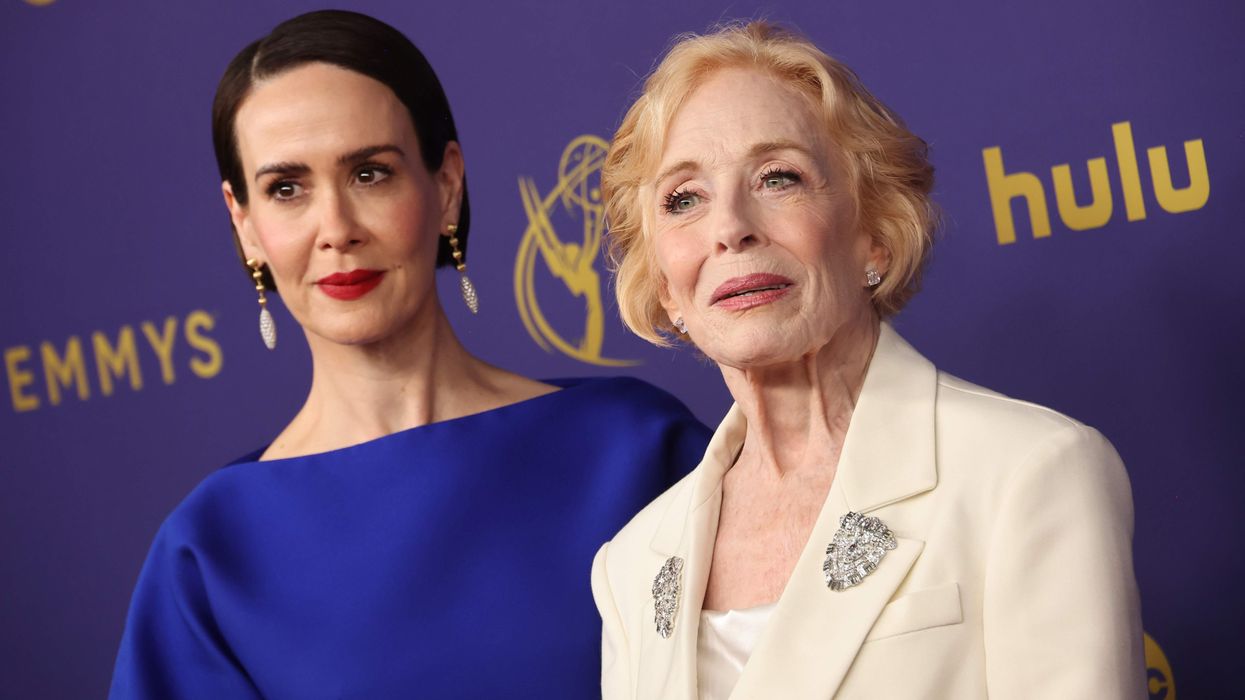

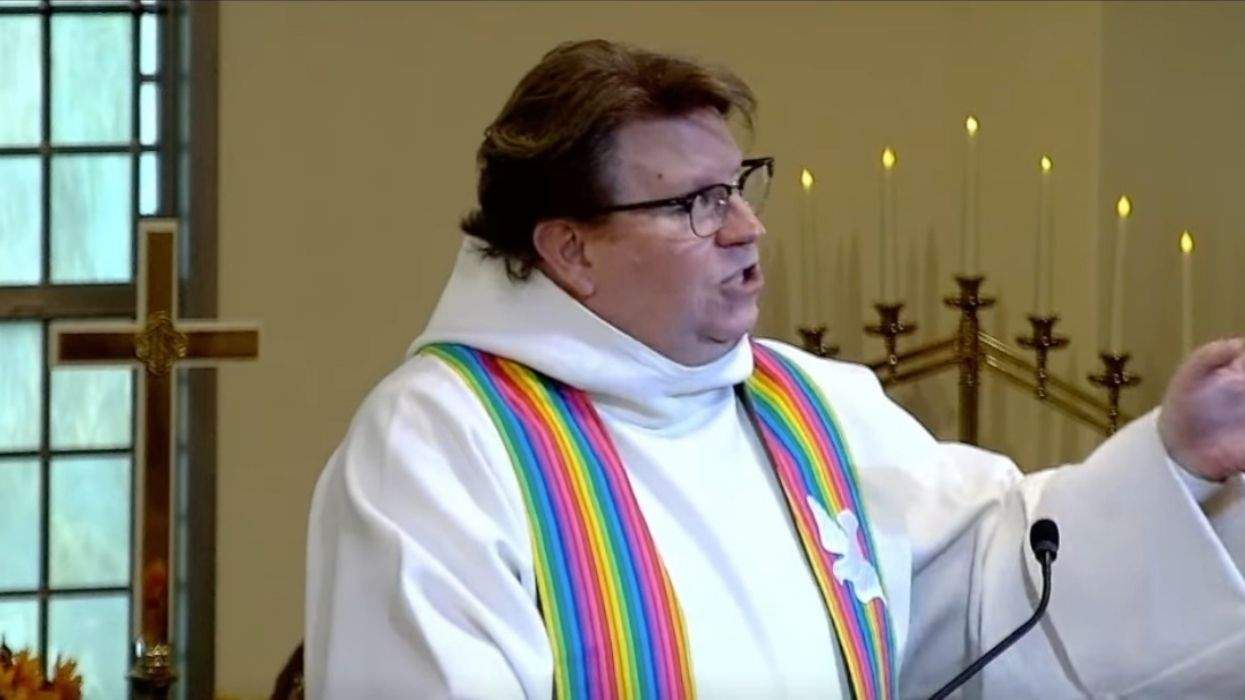


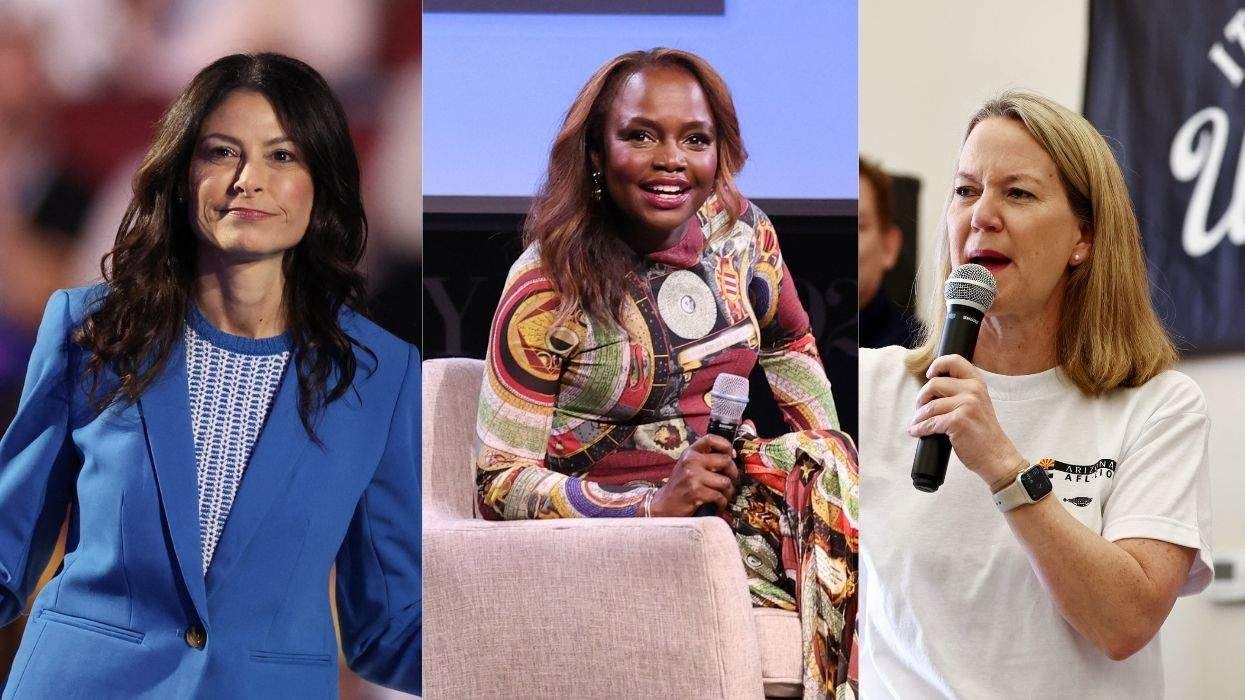



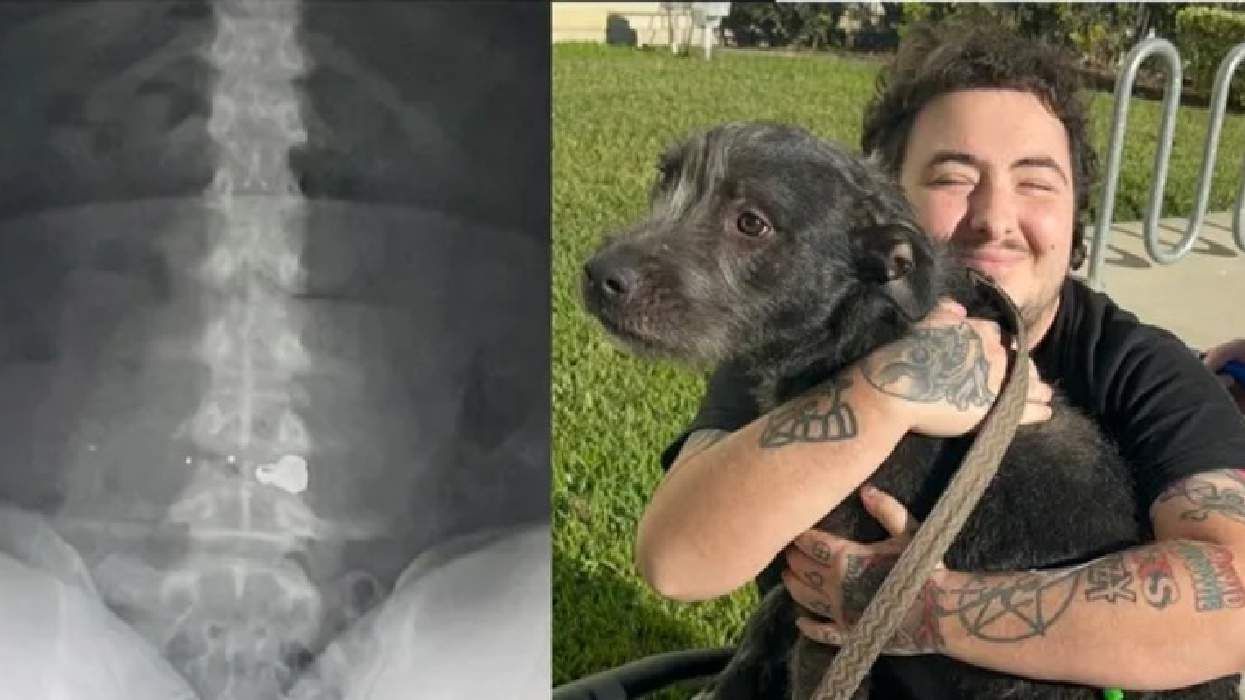



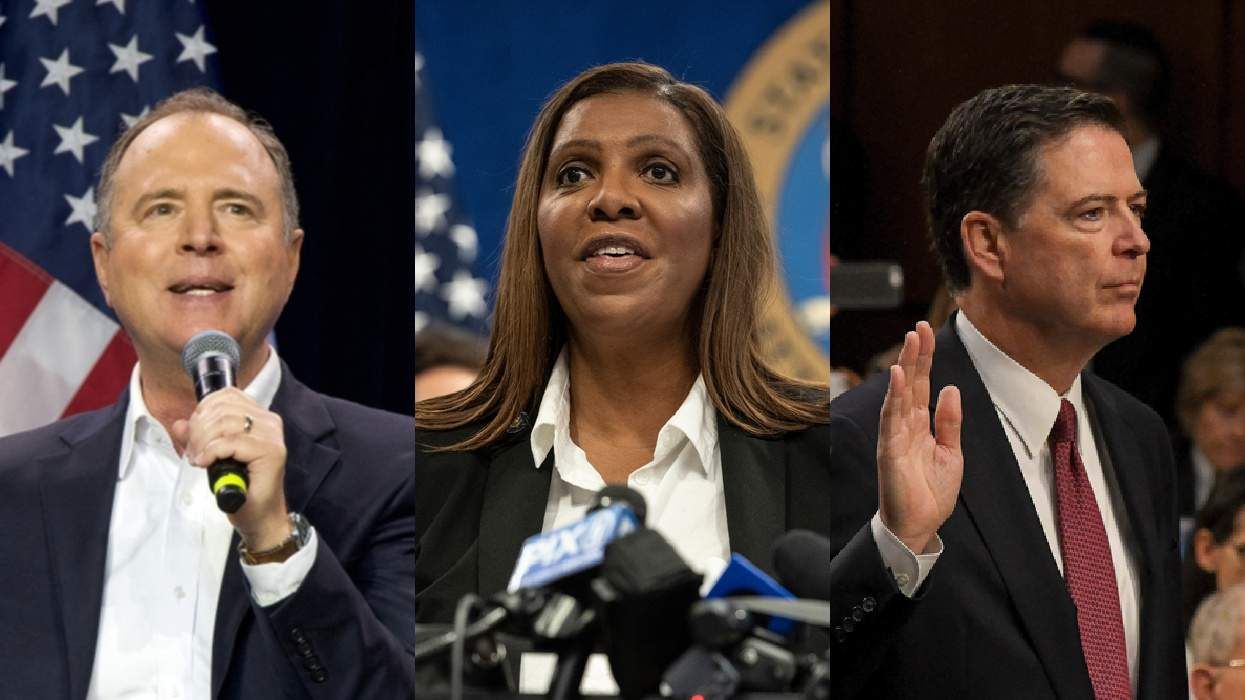

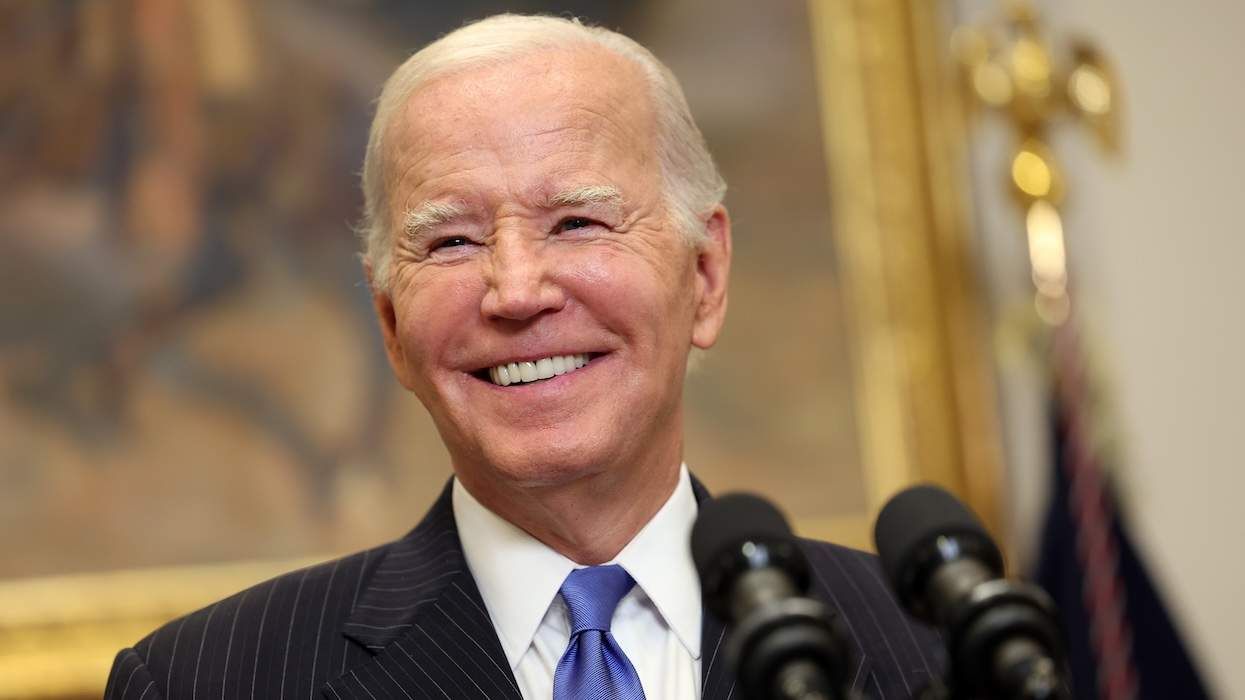
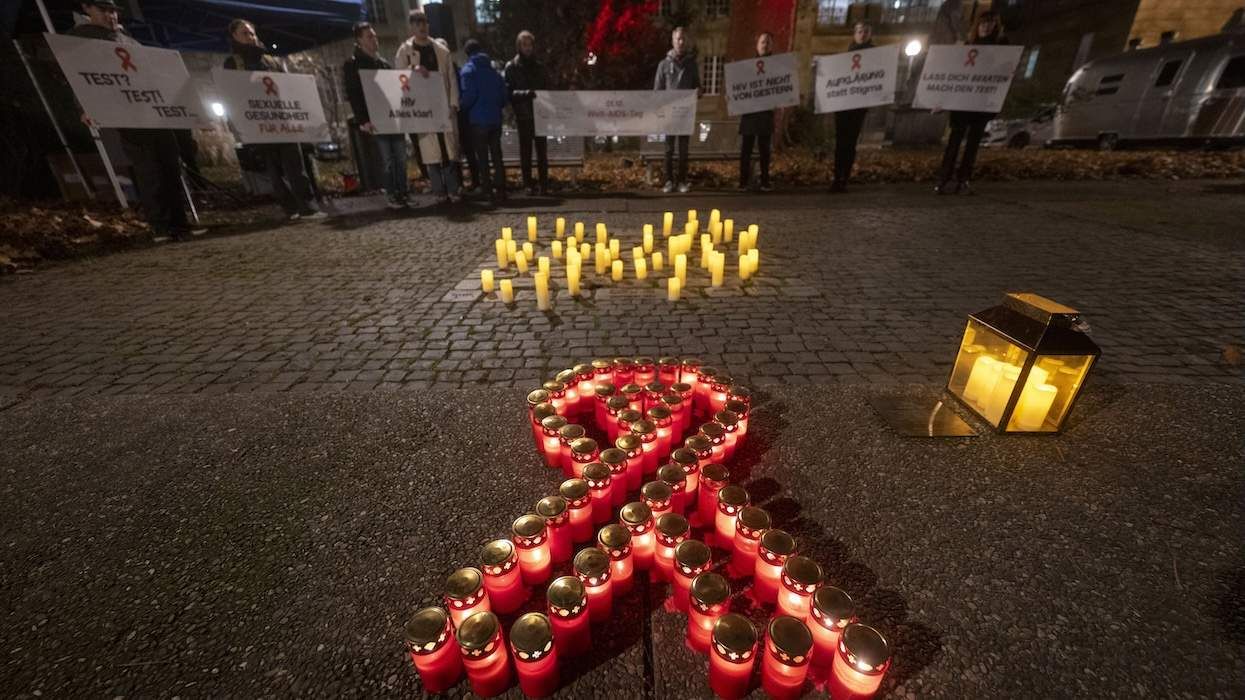










































Charlie Kirk DID say stoning gay people was the 'perfect law' — and these other heinous quotes